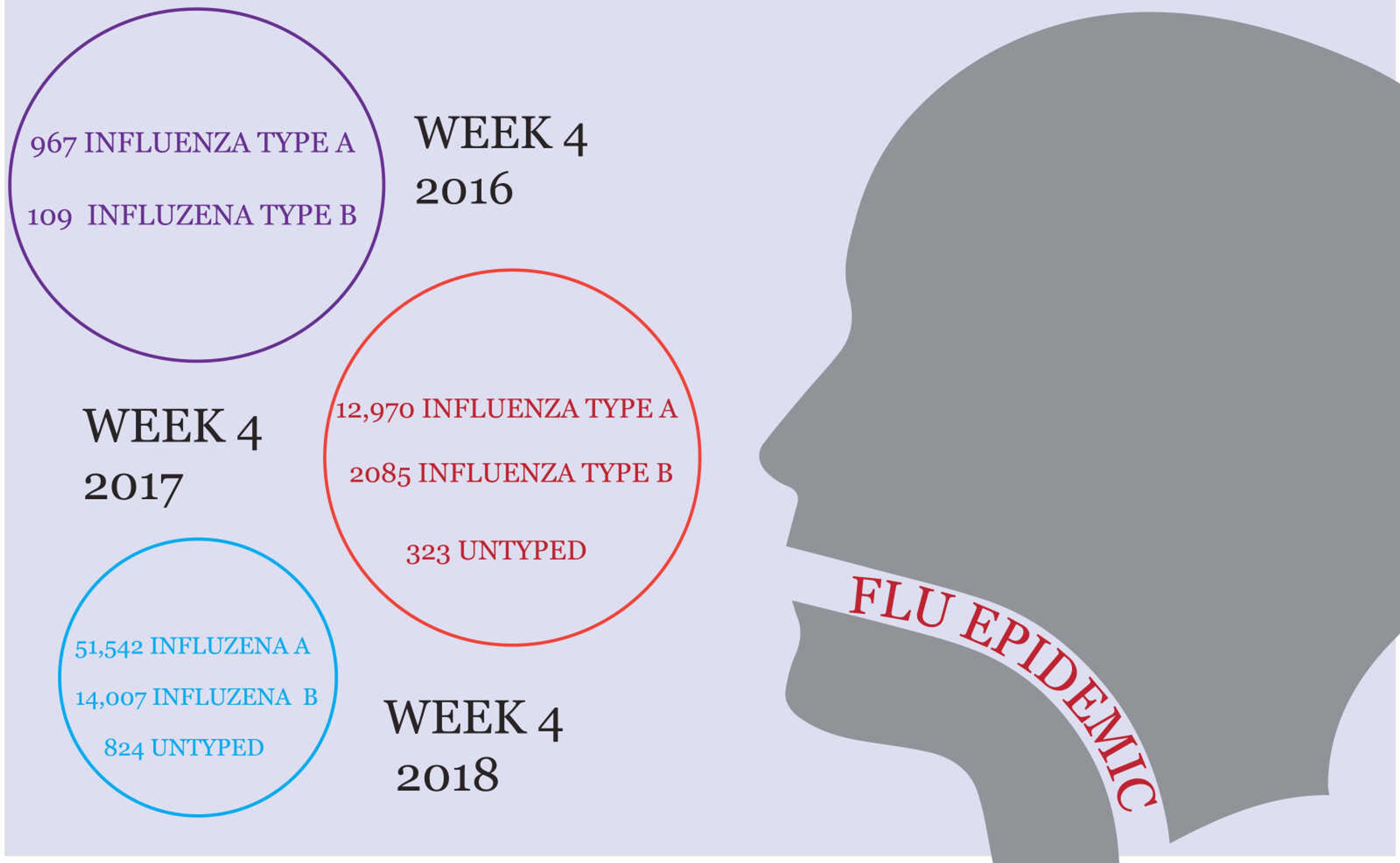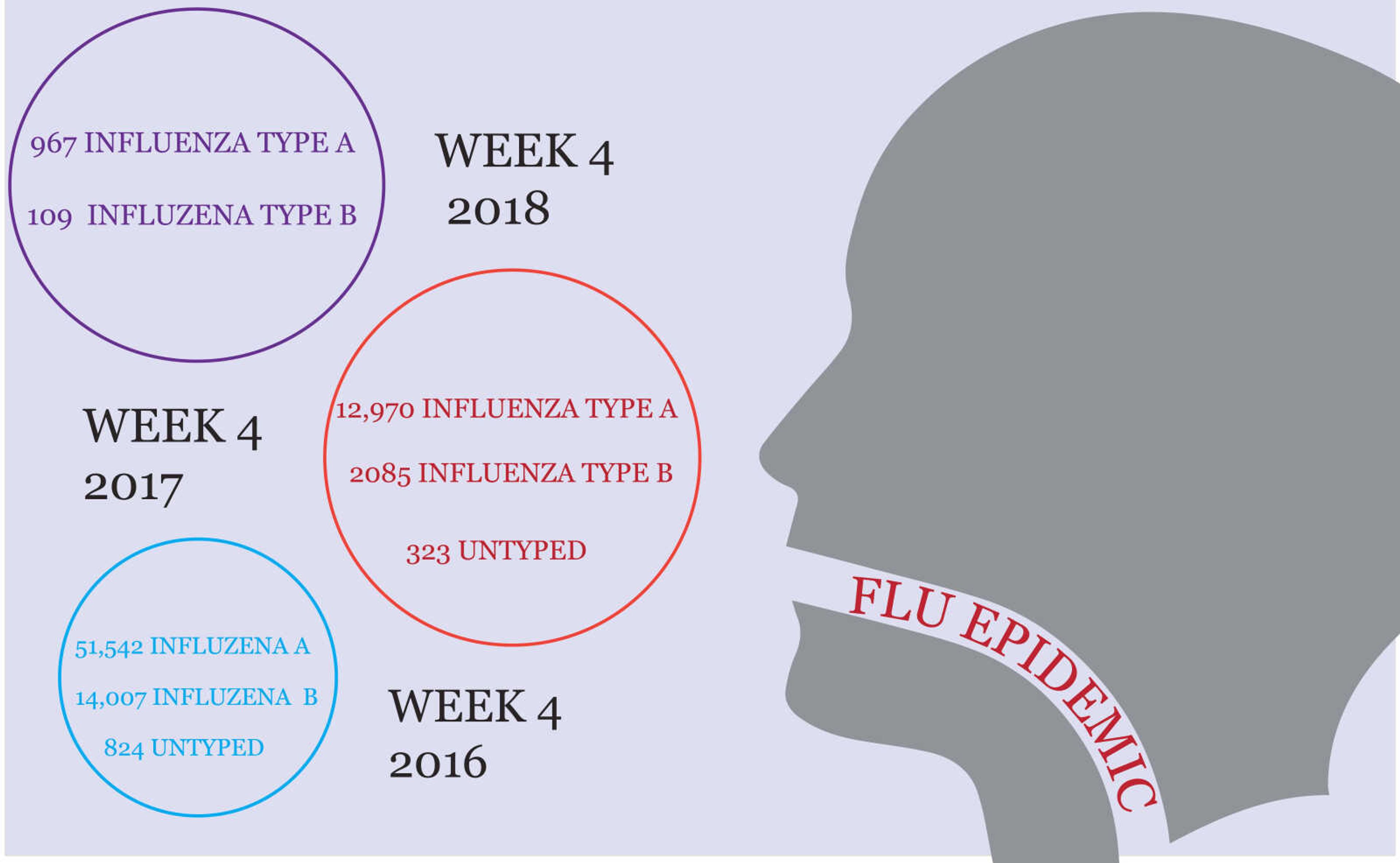Fever over the course of two weeks, coughing and body aches are symptoms of the influenza which have caused dehydration and pneumonia taking 74 lives in Missouri as of January 27, according to Missouri Department of Health and Senior Services.
This year’s influenza virus is associated with a more severe flu resulting in more hospitalizations and more death.
“The more the virus mutates or changes from one year to the next, the less efficient the flu vaccine is,” said Bobbi J. Palmer, a family nurse practitioner at LaCroix Medical Center. “The vaccine is only about 10 percent effective in preventing flu this year.”

Southeast nursing student Stephanie Waser said the flu vaccine is required in order to be granted access into the clinical setting.
Students often choose their patients during fieldwork, but with the flu running rampant students avoid treating patients who have been diagnosed with the flu.
“We are not allowed to take patients with the flu,” said Waser. “That way we avoid getting it or passing it on.”
If they are already treating a patient and diagnose them with the flu, they will continue to treat them. Lisa Jobs, a nursing faculty, said standard precautions are taken when students, who wear gloves and masks, are in community health facilities or homes.
The unexpected shift in the mutant H3N2 virus is causing the vaccine to be less effective than predicted, said Palmer. The LaCroix Medical Center recently ran out of flu vaccines and was directing patients to pharmacies.
“Hand washing is the single most effective method to avoid acquiring influenza,” said Palmer. “Certainty the vaccine is always recommended.”
Senior Brianna Ellis, majoring in mass media, experienced the flu for two weeks this semester. She said she had to drop an eight-week course to focus on feeling better. Ellis said the course was “too fast paced for missing half of the first week.”
Ellis is enrolled in a 16-week class to replace the online course.
Angela Meyer, the director for Facilities Management, advises people to get the flu shot, wash their hands frequently, and to stay home if they think they’re sick.
Facilities Management is contacted about a confirmed flu case by either Residents Life or building coordinators. Meyers said Facilities Management goes to the location of the confirmed case and performs a thorough cleaning with disinfectants. Standard cleaning procedures are currently in place at Southeast.
Vanessa Presley, communicable-disease coordinator at the Cape Girardeau Public Health Department, said most reported cases have been among children ages 2 to 14. The very young and elderly are most vulnerable to the H3N2 virus due to their weak immune systems, according to the Centers for Disease Control and Prevention. Cape Girardeau County reported 967 cases of influenza type A and 109 cases of influenza type B in the past week, said Presley.
For the current flu season, vaccines cover three types of influenza. Vaccines are recommended to contain two types of influenza A (H1N1 and H3N2) and influenza B, according to the Centers for Disease Control and Prevention.
To date, the Missouri Weekly Influenza Surveillance Report calculated 51,542 influenza A, 14,007 influenza B and 824 untyped cases as of January 27.





